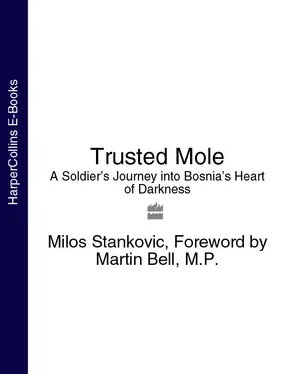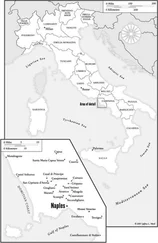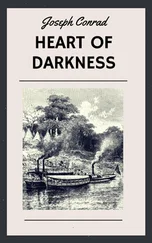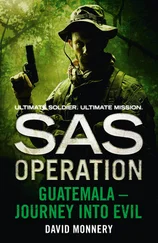He served with honour and distinction and received the MBE from the hand of the Queen. He was the outstanding liaison officer of his time. He did for Britain in the 1990s what Fitzroy MacLean had done in the 1940s, and in the same turbulent corner of Europe. Whenever Milos Stankovic crossed over into Bosnian Serb territory he described it as going to the ‘Dark Side’.
In April 1995, after serving in Bosnia for the greater part of two years, he returned from that theatre of operations and resumed his military career. By this stage he had been promoted to major while in Bosnia. He served as a company commander with the 1 stBattalion of the Parachute Regiment and was accepted into the Joint Services Staff College at Bracknell.
It was there on 16 October 1997, two and a half years after leaving Bosnia, that he was arrested by the Ministry of Defence Police under the Official Secrets Act, on suspicion of having spied for the Bosnian Serbs. Neither the origin nor the precise nature of the allegations was ever made clear.
By that time I had embarked on a new career as a Member of Parliament. He would not have been allowed to speak to me had I still been a journalist, but as an MP I could contact him. I offered to help because I knew the man and was convinced of his innocence. I also knew he was totally alone. There is no lonelier soul on the planet than a British soldier arrested under the Official Secrets Act. The Army at that stage had not even provided a ‘soldier’s friend’, the basic right of any soldier facing a serious charge.
His treatment at the hands of the MoD Police is a story in its own right. He was extraordinarily well served both by his lawyer, Steve Barker, and by his ‘soldier’s friend’, Brigadier Andrew Cumming, who was eventually appointed, as Milos Stankovic’s choice, into that role. All I will say at this point is that the conduct of the inquiry was hostile and prejudicial, and should be used in our police academies for years to come as the textbook case of how not to conduct an investigation.
One of the many injustices of the police inquiry, in which an innocent man’s rights were flagrantly violated, was the sheer inordinate length of it. Stankovic was thirty-four when it started, and thirty-six when the papers were finally passed to the Crown Prosecution Service. One advantage of this, however, was that it gave him the time to reflect on his years as a soldier of peace in Bosnia and to set down his account of them.
That account is what follows. It is the best book yet written on the Bosnian war, certainly including my own. It is more than that. It is the most extraordinary soldier’s story that I have ever read.
Independence, the dream of man.
Independence, the goal of nations.
Why for Bosnia is this a contradiction?
Mother to three major creeds,
Whose devotees fight for spoils
In each other’s gardens.
Horrified is the gaze of the world
While Mother Bosnia tears herself apart.
Offspring, brothers and sisters
Are set along the route to destruction
Deaf to Reason, blind to facts.
Mother Bosnia – a cradle of riches
Now becomes the spring of discord,
History repeating itself
Maiming, killing, displacing,
Robbing of land, the rule of the gun.
Seeds of a future conflict are sown,
Mother Bosnia is torn apart
The atomic age is with us,
But Bosnia is just another name for Lepanto:
Creeds disunited and waging war.
I often wonder how God must feel
When three sons with different flags
Crave for his attention:
‘In your name I kill,
Thy will be done.’
How? By killing the other son?
Mother Bosnia is bleeding
No quarter is given.
Hate is a chameleon of chauvinistic meanings,
And the World at large watches on TV
With an attitude of:
Provided it is you and not me
You can have my sympathy.
And so, Bosnians are
The perpetrators and the victims.
While the World watches on
Mother Bosnia is torn apart.
Bernardo Stella, London 1994
PART ONE
1992–1993
Baby Blue
You must leave now, take what you need, you think will last
But whatever you wish to keep, you better grab it fast
Yonder stands your orphan with his gun
Crying like a fire in the sun
Look out, baby, the saints are comin’ through
And it’s all over now, Baby Blue.
‘It’s All Over Now Baby Blue’, Bob Dylan, 1966.
Thursday 16 October 1997 – Joint Services Command and Staff College, Bracknell, UK
‘Are you Major Stankovic?’ I catch the flash of a silver warrant badge encased in black leather and glimpse a pair of shiny handcuffs in one of the open brief-cases on the table. I nod – what the hell’s going on here?
‘I’m Detective Chief Inspector —, Ministry of Defence Police. I have a warrant for your arrest under Section 2.2b of the 1989 Official Secrets Act …’ he’s reading from the warrant, ‘… on suspicion of maintaining contact with the Bosnian Serb leadership, of passing information which might endanger the lives of British soldiers in Bosnia, of embarrassing the British government and the United Nations …’
My stomach lurches. Instinctively I cross my arms.
‘… You have the right to remain silent, but anything you say can and will be used in evidence against you. Do you understand?’
My mind is racing – say nothing. ‘Mmm’ is my only response.
The day had started normally enough. I’d spent the previous night at home in Farnham reading up on various articles and reports in preparation for the following morning’s syndicate room discussion on getting women into front-line units. Normal Staff College stuff.
The alarm wakes me at seven – quick shave, throw on the leathers, twenty minutes threading my way through solid early morning traffic on the M3. My thoughts are given up to taking a radical line – get ’em into the Paras and Marines first. I leave the Suzuki in the car park, dump the leathers in my room, climb into Barrack Dress – brown shoes, green plastic trousers, shirt, green woollen jersey – don’t forget the wretched name-tag, they’re so anal about them here. I wander over to the syndicate room and leave my bag. Still ten minutes to go. Time for a quick coffee and a smoke.
It’s 0820. I’m standing outside the Purple Hall smoking a cigarette and chatting to James Stewart – something about women sticking bayonets into people and could they do it. Brigadier Reddy Watt walks past. He catches my eye and gives me a funny look. I carry on chatting to James for another couple of minutes. The Brigadier is back again.
‘Milos, could I have a quiet word with you?’ Nothing unusual in that. Probably something to do with last Friday’s syndicate room discussion which he’d sat in on.
‘Sure, Brigadier.’ I put out my cigarette and follow him in silence. It’s slightly uncomfortable and I’m wondering why he’s saying nothing. We round the corner of one of the large unused prefabricated lecture halls. He opens the door and motions me inside. The lights are on. The place is almost empty, but not quite – two men in dark suits on the left, brief-cases open on a desk. At the far end of the hall two more men in dark suits, also with open brief-cases on a desk. They’re chatting quietly. I take a couple of paces forward and turn to the Brigadier to say, ‘We can’t talk in here. There are people here.’ But I don’t – his right hand is stretched out, palm open. There’s a strange expression in his eyes, almost apologetic.
Читать дальше












